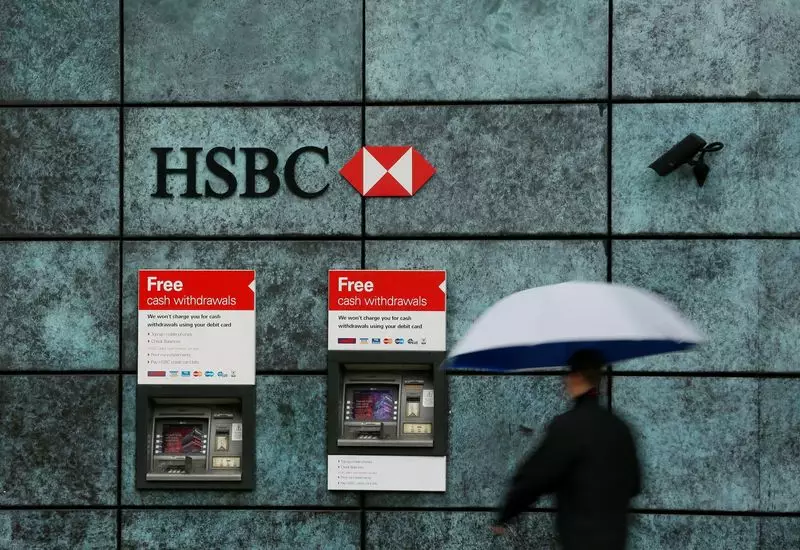In an unexpected turn of events, HSBC Holdings has reported stronger-than-anticipated earnings for the third quarter, showcasing resilience and adaptability in a challenging financial environment. The bank’s profit surged by 10%, reaching $8.5 billion, surpassing analysts’ expectations of $7.6 billion. This performance comes at a time when financial markets are rife with uncertainty, particularly with central banks contemplating interest rate cuts. HSBC’s robust earnings, alongside its recent share buyback initiatives, indicate a sound strategy focused on enhancing shareholder value while initiating significant organizational transformations.
Market Reaction: Surge in Share Prices
Following the release of its quarterly results, HSBC’s shares experienced a notable uptick, soaring 3.7% to HK$71.60 ($9.21), marking the highest trading level since August 2018. Such a positive market response reflects investor confidence bolstered by the bank’s impressive financial results and the announcement of an additional $3 billion share buyback plan. Previously, HSBC had already committed to a substantial $6 billion buyback program, showcasing its determination to return capital to shareholders and strengthen its stock performance amidst fluctuating market conditions.
A Comprehensive Overview of Financial Performance
HSBC’s performance during the quarter was largely driven by rising revenue in both wealth and wholesale banking segments. The bank reported total revenues of $17 billion, a 5% increase from the previous year. This growth can be attributed to heightened customer activity in wealth management products and the bank’s ability to navigate the complexities of volatile market conditions. The performance of its markets business, particularly in foreign exchange, equities, and global debt, stood out as a key contributor, signaling effective management in capitalizing on diverse financial opportunities.
Interestingly, HSBC has maintained its outlook on tangible equity return goals for the near future, aiming for mid-teens over the next two years. However, the bank cautiously acknowledged the changing landscape of interest rates, which could significantly impact profitability moving forward. This foresight emphasizes the necessity for a strategic adaptation to fluctuating economic conditions.
One of the most notable aspects of HSBC’s recent announcements is the restructuring initiative launched under new CEO Georges Elhedery. This ambitious overhaul aims to streamline operations, reduce costs, and enhance operational efficiency in an environment where interest rates are declining. The restructuring plans involve merging various operations and redefining geographical divisions into East and West, which reflects a strategic approach to manage resources better and cater to market dynamics more effectively.
Elhedery’s assertive statement on prompt execution of these initiatives signals a proactive leadership style aimed at navigating HSBC through a period of transition. While further details on the structural changes are slated for release in February, analysts and investors are keenly watching how these plans will unfold and translate into tangible benefits for the organization.
Despite the commendable earnings report, analysts have called for greater clarity regarding the financial implications of HSBC’s structural overhaul. Michael Makdad, a senior equity analyst at Morningstar, stressed that investors’ focus would likely shift towards understanding the specifics of cost reductions and operational synergies in upcoming discussions. This sentiment highlights the ongoing need for transparency from HSBC as it embarks on its restructuring journey, ensuring that stakeholders remain informed and engaged with the bank’s strategic direction.
As HSBC navigates through fluctuating rates and evolving market conditions, its impressive third-quarter performance sets a solid foundation. However, the anticipated structural changes under new leadership add a layer of complexity and excitement to the bank’s future trajectory. As stakeholders await further insights and developments, HSBC’s ability to balance strong financial results with strategic transformations will be crucial in maintaining investor confidence and sustaining profitability as it aims for a more robust and resilient operational model. The coming months will be pivotal in determining how effectively HSBC can leverage its strong earnings while adapting to the dynamic changes within the global financial landscape.

